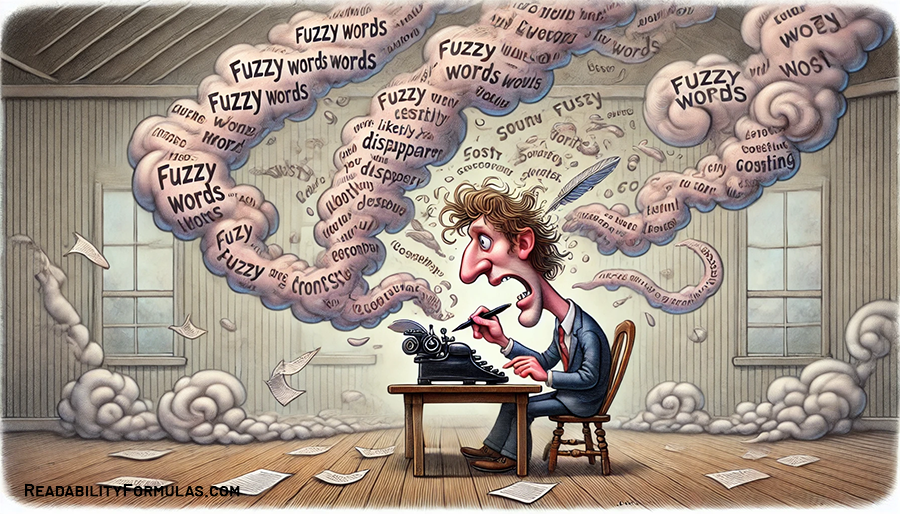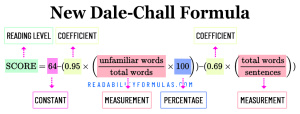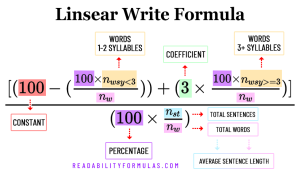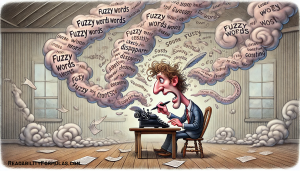Fuzzy Words are like the fog of the writing world—hazy, elusive, and likely to disappear when you try to grasp them. They obscure the true meaning, leaving your readers asking, “What exactly are you trying to say?”
Imagine telling your boss, “The project made significant progress.” But what does “progress” really mean here? Did your team finally solve a critical problem, or did they just rearrange their desks? Maybe they took more brainstorming sessions—who knows? Without clarity, “progress” could mean anything—from launching a new product to simply finding a better coffee machine.
If you want your writing to hit the mark, clear out those fuzzy words. Replace the fog with sharp, detailed specifics. Instead of saying “progress,” say, “We completed 80% of the project tasks ahead of the March 1st deadline.” Now that’s a statement with substance!
To fix fuzzy words, follow these steps:
Identify: Recognize when you use a vague, general, or ambiguous word. Common fuzzy words are: “thing,” “issue,” “process,” “soon,””progress,” etc.
Be Specific: When you catch a fuzzy word in action, interrogate it. What are you trying to say? If you’re talking about “progress,” don’t let it off the hook without revealing the specifics. Are we talking about faster workflows? A task ticked off the list? Or did someone just rearrange the office plants?
Be Detailed: Replace the fuzzy word with a specific term or add details that clarify its meaning. Instead of saying “The project showed progress,” you could say, “The project improved efficiency by 15%.”
Be Concrete: Give your readers something solid to chew on. Swap out, “The team made adjustments” for “The team adjusted the timeline by two weeks to handle the influx of orders.” Now your readers know exactly what went down.
Be Clear: Sometimes all it takes to clear the fog is a little rephrasing. Instead of saying, “There was some improvement,” you might say, “We improved the product’s quality, as shown by the 10% increase in customer satisfaction.” That’s clarity with a side of confidence.
Be Precise: Use precise numbers, dates, and detailed language. Ditch vague phrases like “a lot of time” and go for “three hours.” Trade “big improvement” for “a 20% increase in efficiency.” Your readers will thank you for being precise.
Why Be Bland When You Can Be Bold?
Across all genres, fuzzy words can leave your readers confused, frustrated, or bored. The antidote? Be specific, be clear, and let your writing shine as bright as it was meant to. Or at least, brighter than that vague description you were about to write.
1. Academic Writing: In academic writing, precision is everything. Fuzzy words can make your arguments weak, your research unclear, and your conclusions vague. When readers come across vague terms, they might question your work’s credibility.
Fuzzy: Saying “The study showed some improvement” doesn’t reveal much. Did the test scores go up? Did the participants become Olympic athletes? Be specific!
Specific: “The study showed a 10% increase in test scores among participants.”
2. Creative Writing: Creative writing aims to create vivid imagery and evoke emotions. But with fuzzy words, it’s like watching a movie with a smudged screen—you can’t quite see what’s going on.
Fuzzy: “The room was nice” is the equivalent of a shrug. Was it as cozy as a hobbit hole or as sterile as a dentist’s office?
Specific: “The room was cozy, with a crackling fireplace, plush armchairs, and the scent of old books filling the air.”
3. Business Writing: Clarity and professionalism are key in business writing. Fuzzy words can make your proposals, reports, or emails seem unprofessional or unclear.
Fuzzy: “We had a successful quarter” could mean anything—from finding a penny to striking oil. Did you boost sales? Or did you manage to keep the coffee machine running? Details matter.
Specific: “We increased sales by 20% and secured three new Fortune 500 clients.”
4. Technical Writing: Technical writing is all about precision. If your instructions are vague, someone might end up turning a toaster into a flamethrower.
Fuzzy: “Adjust the settings as needed” is like telling someone to “drive carefully.” Which settings? How much? Why?
Specific: “Adjust the temperature to 180°C and the timer to 20 minutes.”
5. Legal Writing: Legal writing must be airtight, with no room for misinterpretation. Fuzzy words can create loopholes, ambiguities, and legal disputes. The clearer the language, the stronger the document.
Fuzzy: “The contractor must complete the work in a reasonable amount of time.” Reasonable to whom? The client, the contractor, or their great-grandmother? Without specifics, you’re asking for trouble.
Specific: “The contractor must complete the work within 60 days of the contract’s start date.”
6. Journalism: Journalists are supposed to deliver the news, not a riddle. Fuzzy words in journalism are like sand in the gears—they slow everything down and leave your readers wondering what they just read.
Fuzzy: “Many people were affected by the new law.” How many? Two? Two hundred? Two million? Without specifics, readers might assume you’re hiding something—or just making it up as you go.
Specific: “The new law affected over 10,000 residents, which increased property taxes by 15%.”
7. Marketing Writing: Marketing relies on persuasion, and fuzzy words can dilute your message. If your copy isn’t clear and compelling, you risk losing customers’ interest or trust.
Fuzzy: “Our product is better” isn’t a strong selling point. Better than what? By how much? To persuade, you need to be precise.
Specific: “Our product reduces energy consumption by 30%, saving you $200 a year.”
8. Educational Writing: Fuzziness is the quickest way to ensure your students are learning…nothing. If you keep them guessing, they might skip straight to the Internet for answers.
Fuzzy: “The process is simple” is as helpful as saying “just do it.” Which process? How simple? And why is your audience suddenly questioning their life choices?
Specific: “Follow these three steps: gather your materials, mix the ingredients, and bake at 350°F for 30 minutes.”
9. Autobiography: In memoirs, fuzzy words can turn your heartfelt life story into something that sounds like you’re describing a vaguely interesting weekend.
Fuzzy: “I had a difficult time” might make sense to you, but your readers are left wondering—what exactly was difficult? Be specific to draw them into your story.
Specific: “I struggled to balance work and family life, often working late into the night and missing important moments with my children.”
10. Science Fiction or Fantasy: World-building is key in science fiction and fantasy, and fuzzy words can leave your imaginary worlds incomplete or less immersive. Details make your universe come alive.
Fuzzy: “The creature was strange” doesn’t help your readers picture it. Was it slimy, glowing, covered in fur? Specific details help readers fully enter the world you’re creating.
Specific:”The creature had glowing red eyes, scales that shimmered in the moonlight, and a low, menacing growl.”
Here are some of the most common Fuzzy Words to look for in your writing:
| Fuzzy Word | Fuzzy Word | Fuzzy Word | Fuzzy Word |
|---|---|---|---|
| Thing | Stuff | Some | A lot |
| Good | Bad | Nice | Big |
| Small | Soon | Few | Many |
| Often | Important | Necessary | Appropriate |
| Successful | Effective | Interesting | Problem |
| Issue | Change | Impact | Result |
| Support | Help | Success | Plan |
| Progress | Several | Various | Significant |
| Considerable | Important | Common | Frequent |
| General | Specific | Different | Typical |
| Normal | Usual | Rare | Unusual |
| Basic | Complicated | Complex | Advanced |
| Certain | Uncertain | Possible | Probable |
The Fallout of Fuzzy Words
Words are powerful, but when they’re fuzzy, they can become ticking time bombs. The careless use of vague language has sparked legal battles, diplomatic disasters, and financial meltdowns. Here are some infamous cases where fuzzy words caused serious fallout.
1.
Legal: The “Reasonable Time” Clause in Contracts
Scenario: Contract dispute over completion timelines
Real-Life Example: In a 1990s case about the construction of a nuclear power plant, a contractor was sued for failing to complete the project within a “reasonable time.” The term “ reasonable time ” was not clearly defined in the contract, leading to a lengthy legal battle. The court had to figure out what “ reasonable time ” meant in this context. This caused delays and financial losses for both parties.
2.
Military: The Bay of Pigs Invasion
Scenario: Miscommunication during a military operation
Real-Life Example: During the Bay of Pigs invasion in 1961, the U.S. government used ambiguous language in its communications and planning. The term “ plausible deniability ” was used to suggest the U.S. could deny involvement in the invasion if it failed. This fuzzy term caused confusion among the planners and executors of the operation. The lack of clear directives and the vague expectation of “ deniability ” added to the invasion’s failure, resulting in a diplomatic disaster and severe consequences for U.S.-Cuban relations.
3.
Politics: The Gulf of Tonkin Resolution
Scenario: Vague language leading to war
Real-Life Example: In 1964, the U.S. Congress passed the Gulf of Tonkin Resolution, authorizing President Lyndon B. Johnson to take “ all necessary measures ” to repel armed attacks in Vietnam. The phrase “ all necessary measures ” was vague on purpose and gave the president broad powers to escalate the Vietnam War without a formal declaration of war. This unclear language led to military escalation—it prolonged the controversial conflict that impacted both Vietnam and the United States.
4.
Education: No Child Left Behind Act (NCLB)
Scenario: Ambiguous policy language leading to inconsistent educational outcomes
Real-Life Example: The No Child Left Behind Act, passed in 2001, required schools to make “ adequate yearly progress ” (AYP) in student achievement. However, the term “ adequate yearly progress ” was not clearly defined so it led to mixed views by states and school districts. Some schools focused narrowly on test scores, while others interpreted AYP more broadly. This vagueness resulted in uneven conduct of the law: some schools altered results to meet the loose standards, while others struggled to improve. The ambiguity in the law’s language caused widespread criticism and reforms in U.S. education policy.
5.
Healthcare: The Vioxx Scandal
Scenario: Ambiguous risk communication leading to public health crisis.
Real-Life Example: Vioxx, a pain medication released by Merck in 1999, was marketed as having “ a favorable safety profile .” However, this vague term hid results of clinical trials that showed a higher risk of heart attacks and strokes. The vague language used in marketing and risk communication added to the widespread use of Vioxx, which was eventually linked to thousands of deaths. The scandal led to a massive recall, lawsuits, and severe damage to Merck’s reputation.
6. Aviation: Tenerife Airport Disaster
Scenario: Miscommunication due to ambiguous language
Real-Life Example: The Tenerife airport disaster in 1977 was the deadliest accident in history, with 583 fatalities. The disaster was partly caused by ambiguous communication between air traffic control and the pilots of a KLM Boeing 747. The KLM captain misinterpreted a message as clearance for takeoff when the controller had not explicitly stated it. The ambiguous language used in the exchange led to two jumbo jets colliding on the runway. This tragedy highlighted the importance of clear, direct communication in aviation.
7. Finance: The 2008 Financial Crisis
Scenario: Ambiguous financial products contributing to economic collapse
Real-Life Example: In the lead-up to the 2008 financial crisis, mortgage-backed securities (MBS) and collateralized debt obligations (CDOs) hid their true risks. Terms like “ AAA-rated ” and “ low risk ” hid the underlying subprime mortgages and their risks. This lack of transparency led to widespread defaults and the collapse of major financial institutions, sparking a global economic crisis.
8. Manufacturing: The Ford Pinto Case
Scenario: Ambiguous safety standards leading to product liability
Real-Life Example: In the 1970s, Ford Motor Company released the Pinto, a compact car that became infamous for its design flaw—its fuel tank was prone to rupture in rear-end collisions. Ford’s internal safety standards were vague and focused on cost-benefit analysis rather than clear, specific safety criteria. The term “ acceptable risk ” was used to justify not improving the fuel tank design, even though it was known to be hazardous. This fuzzy language in safety checks led to many fatal accidents, extensive litigation, and a major recall, severely damaging Ford’s reputation.
9. Environmental Policy: The BP Oil Spill
Scenario: Ambiguous regulatory language leading to environmental disaster
Real-Life Example: The 2010 Deepwater Horizon oil spill, one of the worst environmental disasters in history, was partly caused by vague language in safety regulations and operational procedures. The term “ best available technology ” was used in regulations without clearly defining what that meant in practice. This ambiguity allowed BP to cut costs that marred safety, leading to the blowout and massive oil spill. The disaster caused severe environmental damage, loss of human life, and billions of dollars in fines and cleanup costs.
10. Artificial Intelligence: OpenAI’s GPT Usage Guidelines
Scenario: Vague policy language leading to inconsistent enforcement and public confusion
Real-Life Example: In the early 2020s, OpenAI released guidelines for how developers and companies could use its GPT-based models. The policy stated that use cases must not be “high risk,” “deceptive,” or “harmful,” but didn’t define these terms clearly. The phrase “ high risk ” led to confusion: some developers were banned for building mental health tools, while others using similar technology faced no action. The fuzziness of these terms allowed uneven policy enforcement and created a chilling effect on innovation. This highlighted the need for clear, transparent guidelines as AI technology rapidly evolves.
And there you have it! Fuzzy words—those sneaky little villains—have been unmasked for the troublemakers they are. Whether they’re causing courtroom chaos, turning business meetings into guessing games, or leaving your readers more puzzled, it’s clear writers should avoid these vague villains.
Next time you’re tempted to write “thing” or “progress,” remember: you’re better than that! Be bold, be precise, and give your readers the clarity they crave. After all, nobody ever won a Pulitzer with fuzzy words—unless, of course, it was for writing the world’s vaguest mystery novel.
Scott, Brian. “The Fog of Fuzzy Words: How to Make Every Word Work for You.” ReadabilityFormulas.com, 2 Apr. 2025, https://readabilityformulas.com/the-fog-of-fuzzy-words/.










